A remarkable image has surfaced showing the Royal Fleet Auxiliary (RFA) vessel Proteus operating alongside the Russian spy ship Yantar in British waters, an encounter that underscores the UK’s efforts to counter covert maritime threats.
The meeting, which occurred recently, highlights the critical role Proteus plays in monitoring and deterring vessels like Yantar, known for its suspected intelligence-gathering missions targeting undersea infrastructure.
In a statement, the Ministry of Defence confirmed the central role of Proteus in safeguarding the UK’s maritime security. “The Royal Fleet Auxiliary, which supports Royal Navy operations, is a key element of the UK’s strategy to safeguard offshore infrastructure, with its multi-role ocean surveillance ship, RFA Proteus, capable of deploying submersible drones to assess undersea cables and pipelines,†the statement read.
It also noted that Proteus had previously “been involved in the shadowing of Yantar last November.â€
The future of British seapower lies in ships like RFA Proteus
Yantar has drawn significant international scrutiny for its suspected role in mapping and targeting critical undersea infrastructure, such as the subsea cables and pipelines that underpin global communications and energy networks. This latest encounter follows a November incident where Yantar was tracked closely by the Royal Navy and Proteus after loitering near sensitive undersea sites in the UK’s Exclusive Economic Zone.
Proteus is specifically designed to address such threats, equipped with advanced monitoring systems and submersible drones capable of assessing and safeguarding undersea assets.
The recent encounter comes at a time of heightened maritime security measures, particularly following the suspected sabotage of the Estlink2 undersea cable in the Baltic Sea last Christmas. Such incidents have prompted the UK to bolster its efforts to protect vital offshore infrastructure, working alongside NATO allies to counter suspicious activity in European waters.
Defence Secretary John Healey has been vocal about the importance of countering these threats. “National security is our government’s first duty… Alongside our NATO allies, we are strengthening our response to ensure that Russian ships and aircraft cannot operate in secrecy near UK or NATO territory,†Healey said recently, adding, “We know what you are doing, and we will not shy away from robust action to protect Britain.”




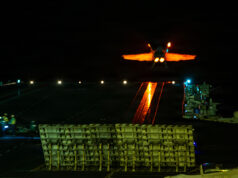
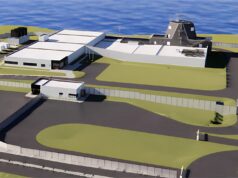
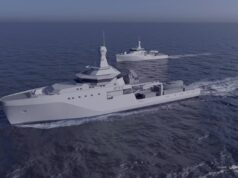
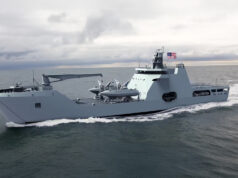
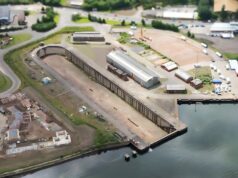

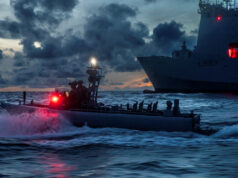

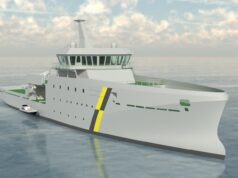

Underlines not underscores
It means the same thing
Exactly the same thing …
Not going to lie I thought Proteus would look ugly from all angles, i was wrong head on she looks quite menacing.
Yes, ours is better looking than theirs.
State of the art v Soviet. A pretty good reflection of the difference between Russia and the West and why it’s obvious the whole Ukraine. Entire was supposed to be an easy first move into frightening, infiltrating and enforcing economic compliance to enable it to exploit us to help propel it into an economic state whereby it isn’t totally subsumed by China. Just made their decline and subservience all the more certain… as long as Trump doesn’t give them a free ride back into world trade and acceptance.
Yantar looks quite elegant IMO, like those super yachts with their own submarine.
A new lick of paint and you could easily spend a summer in the Med.
Proteus looks like it the initial concepts were ugly and the designers just leant into the aesthetic.
He talks tough. But he’s a politician, so far HMG are busy hampering defence and the protection of Britain with their cuts and refusal to Instigate 2.5 but also by not having a threats and needs based review, but one hamstrung by HMT needs.
You don’t fool me, Healey.
I hope the have the facility to flood their receivers with broadband white noise too.
So Proteus is T32 then?
What if the ship is only there to record our submarines laying charges around the under sea cables?
Who knows when a boat load of holidaying Ukrainian dentists might sail past.
Don’t be too diplomatic, just tell them to FO!
Trump has sold out nsto allies
Trump is a rapist convicted criminal and Russian puppet who’ll betray his own people almost as fast as Nato and especially Ukraine. He’s a coward and illiterate blowhard and as great as threat to Britain and Europe as Putin is. Putin wants Ukraine for its vast wealth of rare earth minerals as is, Trump and his fascist desire to take Greenland for America.
Europe is our natural place and long may it remain so, no matter how many right-wing farage scum try to undermine this countries future.
Its time for your nap
Let us never forget Trump was a repeat draft-dodger. Boris enobled the son of a KGB bigwheel. Further more Vlad Putin stated that KGB actives never retire even when they throw expensive PU’s in Italy
President Zelenskyy is smart enough to engage with the narcissistic sociopath #47 to do a deal that makes #47 believe that he’s won, while pootin also has a tale to tell of victory if that’s what it takes to get long term peace for Ukraine.